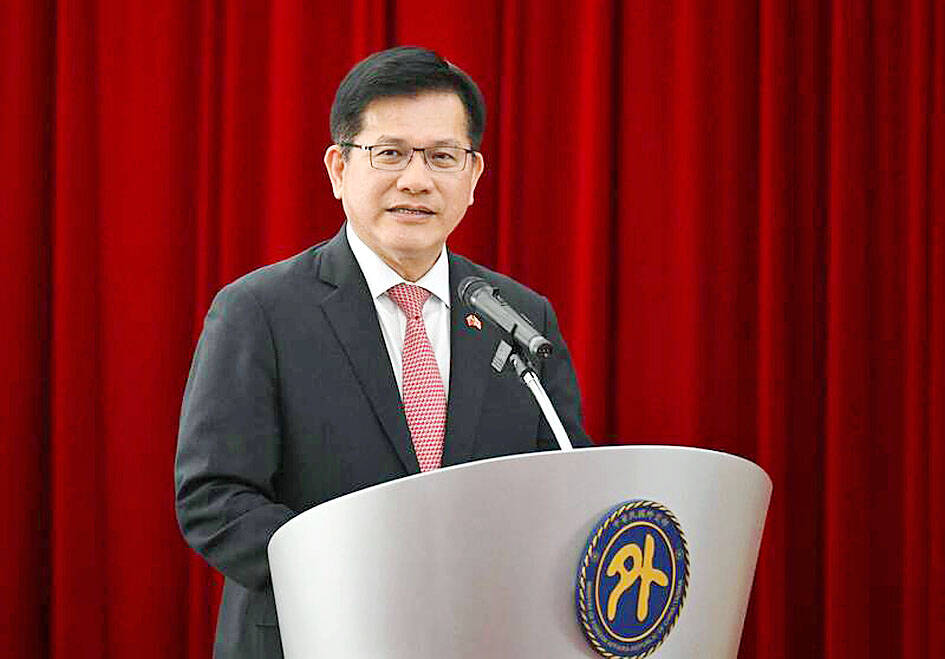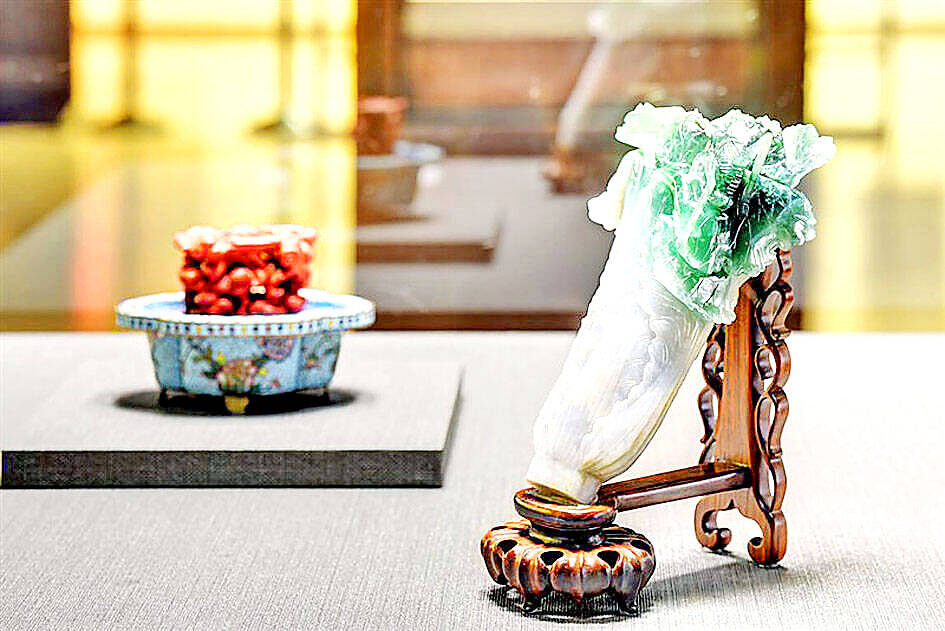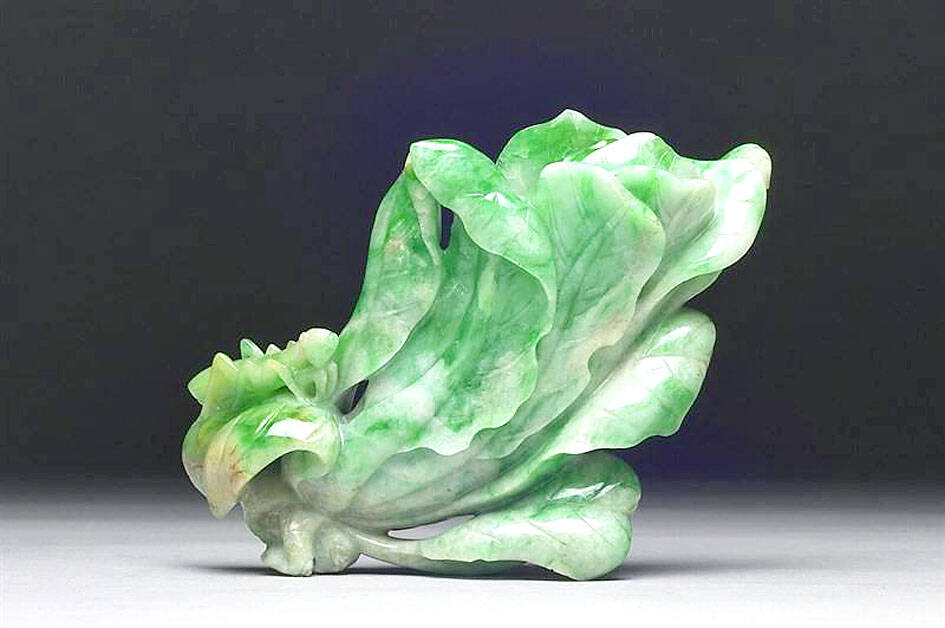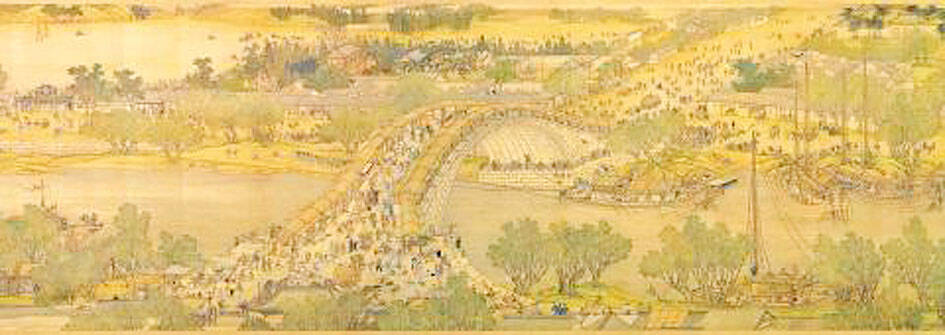Minister of Foreign Affairs Lin Chia-lung (林佳龍) on Wednesday night departed for the Czech Republic and several other countries in Europe, after making low-profile trips to Japan and the Philippines.
Lin made the Czech Republic his first stop in Europe as the two countries have developed close diplomatic and economic relations over the past few years, an exclusive report by the Liberty Times (the Taipei Times’ sister paper) showed.
Lin and Minister of Culture Li Yuan (李遠) yesterday attended the opening ceremony of “One Hundred Selected Masterpieces of the National Palace Museum and Their Stories” at the National Museum in Prague.

Photo: Taipei Times
Deputy Legislative Speaker Johnny Chiang (江啟臣) also led a legislative delegation to the ceremony.
The exhibition is part of events under the “European Taiwan Cultural Year” that Lin and Li jointly promoted.
It is the first time that the National Palace Museum has exhibited its cultural artifacts — including the iconic Jadeite Cabbage With Insects (翠玉白菜) sculpture and Along the River During the Qingming Festival (清明上河圖), a handscroll painting — in the Czech Republic.

Photo courtesy of the National Palace Museum
The exhibition was made possible following amendments passed by Czech parliament.
Lin was reportedly scheduled to meet with Czech politicians, although the Ministry of Foreign Affairs was assessing whether details of the meetings would be made public.
Lin’s trip to Europe was described as an exchange between the two countries in the fields of economy, trade, technology and culture at higher government levels, a source familiar with the matter said.

Photo courtesy of the National Palace Museum
Similar to his visits to Japan and the Philippines over the past few months, Lin did not disclose the itinerary of the European trip in advance and accepted all the arrangements made with the countries he had planned to visit to avoid interference from Beijing.
China’s Taiwan Affairs Office on Wednesday criticized the National Palace Museum’s exhibition in Prague, saying that the Democratic Progressive Party (DPP) government is using it to advocate Taiwanese independence and remove Chinese influence from Taiwan.
“Desinicization is never a problem in Taiwan, whether the country is governed by the DPP or the Chinese Nationalist Party (KMT),” Mainland Affairs Council (MAC) Deputy Minister and spokesman Liang Wen-chieh (梁文傑) told a news conference in Taipei. “China launched the Cultural Revolution in the 1960s that was aimed at destroying Chinese culture, while Taiwan helped preserve the essential content of Chinese culture and customs.”

Photo courtesy of National Palace Museum
The Mazu Grand Ancestral Temple on Meizhou Island in China’s Fujian Province is a major pilgrimage site for devotees from across China, Taiwan and Southeast Asia, he said.
The temple was nearly destroyed during the Cultural Revolution and would not have been rebuilt if it were not for generous donations from Taiwanese, he said.
The temple, now managed by the Chinese Ministry of Culture and Tourism, charges visitors for entry, he added.
The National Palace Museum’s exhibition in Prague is a cultural exchange, as was the case when it organized exhibitions in France and other countries, Liang said.

Taiwan is gearing up to celebrate the New Year at events across the country, headlined by the annual countdown and Taipei 101 fireworks display at midnight. Many of the events are to be livesteamed online. See below for lineups and links: Taipei Taipei’s New Year’s Party 2026 is to begin at 7pm and run until 1am, with the theme “Sailing to the Future.” South Korean girl group KARA is headlining the concert at Taipei City Hall Plaza, with additional performances by Amber An (安心亞), Nick Chou (周湯豪), hip-hop trio Nine One One (玖壹壹), Bii (畢書盡), girl group Genblue (幻藍小熊) and more. The festivities are to

Auckland rang in 2026 with a downtown fireworks display launched from New Zealand’s tallest structure, Sky Tower, making it the first major city to greet the new year at a celebration dampened by rain, while crowds in Taipei braved the elements to watch Taipei 101’s display. South Pacific countries are the first to bid farewell to 2025. Clocks struck midnight in Auckland, with a population of 1.7 million, 18 hours before the famous ball was to drop in New York’s Times Square. The five-minute display involved 3,500 fireworks launched from the 240m Sky Tower. Smaller community events were canceled across New Zealand’s

‘SLICING METHOD’: In the event of a blockade, the China Coast Guard would intercept Taiwanese ships while its navy would seek to deter foreign intervention China’s military drills around Taiwan this week signaled potential strategies to cut the nation off from energy supplies and foreign military assistance, a US think tank report said. The Chinese People’s Liberation Army (PLA) conducted what it called “Justice Mission 2025” exercises from Monday to Tuesday in five maritime zones and airspace around Taiwan, calling them a warning to “Taiwanese independence” forces. In a report released on Wednesday, the Institute for the Study of War said the exercises effectively simulated blocking shipping routes to major port cities, including Kaohsiung, Keelung and Hualien. Taiwan would be highly vulnerable under such a blockade, because it

The Ministry of Foreign Affairs (MOFA) yesterday said it is closely monitoring developments in Venezuela, and would continue to cooperate with democratic allies and work together for regional and global security, stability, and prosperity. The remarks came after the US on Saturday launched a series of airstrikes in Venezuela and kidnapped Venezuelan President Nicolas Maduro, who was later flown to New York along with his wife. The pair face US charges related to drug trafficking and alleged cooperation with gangs designated as terrorist organizations. Maduro has denied the allegations. The ministry said that it is closely monitoring the political and economic situation